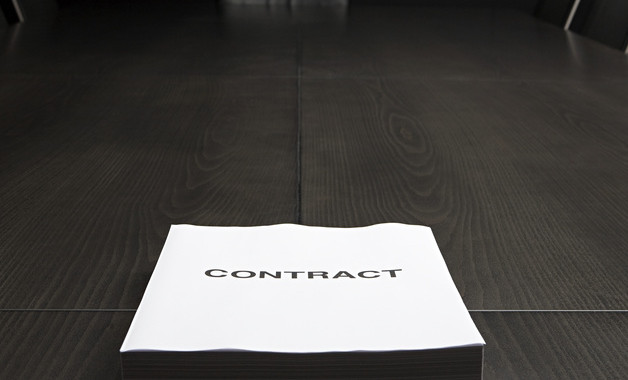
第1篇 商业银行扶持和破解中小企业融资问题主题演讲稿
非常感谢主办方给我这样一个机会,跟大家分享我们中小企业融资的思想和实践探索。今天的题目是中小企业融资难和银行的一些实践探索,事先不知道是这样的方式,原来我以为是互动,也没有准备ppt。我讲三个方面的内容,一个是我们对中小企业融资难的一些思考,为什么出现中小企业融资难?它的主要原因在什么地方?前面几位专家也分析了这个问题。
我想归结为两个方面的原因,一个就是总体来说中小企业或者讲一些创业企业,我把它定位叫做创业企业,是一些早期的中小企业,它的风险的确很高,而且在这个阶段的时候,它的商业模式还不是很确定,所以它的现金流也不稳定,对我们银行来说,相对的风险还是比较高。
另外,对这类企业,我们银行从我们银行的角度来说,我们去识别这些风险,或者控制风险的能力,包括我们银行储备的人才,从目前的现状来说我们比较欠缺,当然另外一点,我们银行的信贷产品中,比较符合这些企业特点的,特别是早期企业这些特点,因为这些企业大部分都是清资产,缺乏传统银行需要的抵押和担保,它又比较缺乏,应该来说,对我们银行来说挑战比较大,我们缺少适合这些企业特点的信贷产品。所以从这个角度来讲,经常会碰到很多中小企业,特别是早期的中小企业从银行借不到钱,这是一个方面,风险比较高。
第二个方面,我想,我们银行在做中小企业融资的时候,我们的收益,还是比较低。特别是不能覆盖面临的高风险,因为大家可以看到近十年来,创业风险投资,非常活跃,特别是创业版开设以后,应该说我们也看到一个统计,将近一半的企业,甚至超过一半的创业版上市公司后面都有创投公司或者pe公司站在它后面,而且这些创投公司或者pe公司获得了很高的回报。也有统计说他们的回报超过十倍,他们的年化收益率是百分之几百跟我们银行来比根本没法比,介绍这个情况的目的在于我们银行为中小企业特别是早期的中小企业提供融资服务,我们获得的收益,主要是靠利息收入,而且我们的利息收入也不是很高,所以难覆盖这种高风险,这也是相对来说这几年银行不太愿意推进高风险的中小企业融资的主要原因之一。这是一个,我想目前我们对中小企业融资难的一个思考。
我想介绍一下,全球的商业银行中,有一家银行在座各位知道,美国的硅谷银行非常成功,当然它主要是为创业企业提供金融服务的,我也有幸,当然之前我们也对它进行研究和观察,今年四月份我还去了硅谷银行对他们进行了实地考察,也做了交流,硅谷银行为中小企业提供融资当中有几个成功的经验。第一个它就是跟创投企业合作开展业务的互动。我们发现当然硅谷银行本身是个银行,同时它还形成了一个金融集团,除了银行以外它也有创投公司,也有它的基金公司还有其他的提供金融服务的公司,所以它也投资了很多创投基金,是很多创投基金的股东。另外他也给创投公司提供贷款,它和美国500家创投建立了关系,他做贷款基本上希望你创业企业拿到了创投的资金,他才会进行配套的贷款。这是控制风险一个比较好的措施,当然他也比较看中这些创业企业本身拥有的ip,或者我们这里讲的知识产权,当然他并不需要做质押,他的想法是未来如果一旦这个企业,你还不了贷款的话,他会联手创投把这些ip、知识产权去做出售,然后获得的补偿来偿还它的贷款。
当然和中国的情况不太一样。美国关于技术交易的市场非常活跃,美国很多大的公司会买很多小企业拥有的专利,我想这个是美国硅谷银行比较成功一方面,是它跟创投相结合。
第二,我们看到美国硅谷银行也是分阶段分行业为创业企业提供服务。这样三个阶段,一个是加速器阶段,我们称为孵化器阶段,这个企业还在研发过程中,他的产品还没有成形,即使它有产品销售销售规模很小,不到500万美金,应该说在这个阶段硅谷银行提供融资服务是非常有特色,它的市场占有率接近50%,很多美国大的银行或者中等的银行都不愿意做这个东西。一定是创投投了之后它来贷款,这里面资金的配比,大概拿1000万美金的投资,他会贷款100到300万美金。这也是它特色的地方,它不需要提供担保,只是说它坚持主张,我是优先于你的投资,一旦公司产生风险,首先要归还我的贷款。
第二个是成长期,这个企业销售额在慢慢扩大,随着企业扩大之后,他会产生一些流动资金方面的需求,这个时候银行通过供应链融资,应收账款、保底。这个公司已经接近上市,它的销售额超过5000万美金,更多是帮助这个企业进行现金管理或者帮助这个企业走向世界进行国际化的运作。所以它是分阶段的,我们觉得它应该是在第一个阶段,加速期阶段有特色。
它也分行业不是所有的行业都服务,围绕着一个是叫信息技术,我们熟称为it,第二个是生物科学。第三个是清洁能源,就是我们说的新能源。它三个行业有不同的专家分析这些行业的特点,成功的因素,它的风险点,来协助他的分支机构为这些企业提供服务。除了这个高科技行业还做了一个比较传统的产业,因为美国总部是在加利福尼亚州,加利福尼亚州是美国葡萄主要的产地,美国很多很好的葡萄酒都产自于加州,加州也有一块是为美国葡萄酒庄园提供服务,在美国有300多家葡萄酒庄园,其中200多家硅谷银行给他们贷款,每年他会问这些农民采购葡萄,然后加工成葡萄酒,这个相对来说比较低风险,所以他也通过不同的行业,不同的阶段提供服务,进行资产组合,来控制它的风险。
目前中小企业融资难的问题,我们也看到硅谷银行有一些成功的经验,我们因为是一家地方性的银行,我们传统就是以中小企业融资为我们主要业务的银行,我们每年的信贷投放中50%以上是投放到中小企业中来的,我们做了哪些方面的实践探索?大概四个方面。
一个,我们成立了专营机构,传统的商业银行在做高风险贷款方面缺乏经验也缺乏这方面的人才,我们先成立这样的专营机构,总行的科技型中小企业融资中心,想从我们这样一个专门机构做一些探索,积累经验培养一些人才慢慢向我们整个银行推广。
第二个方面,我们传统的银行的信贷产品都往往比较强调你的抵押和担保,我们要突破这个模式。也想方设法动了很多脑筋,开发了适合中小企业,特别是早期中小企业特点的一些信贷产品,也有股权质押,很多没有厂房也找不到很好的担保,以股东持有的股权来做质押贷款。第二个开发了定单融资的产品,在供应链融资中比较好的融资产品,又比应收帐款更前一步,你拿了接了合同,或者拿了定单之后你要组织生产,没有资金我银行给你贷款,当然你未来回款偿还我的贷款,当然还有其他一系列的产品,我们开发了一些比较适合这些企业特点的产品,应该说我们做了很多实践探索,应该比较受企业的欢迎。我们也把这些产品慢慢推广到我们整个银行。
第三个方面,开拓了我们一种新的业务模式,我们这里简称为“投贷联动”,我们从硅谷银行那里学,针对一些已经吸引到风险投资或者正在吸引风险投资的企业,来给他提供贷款,风险比较高,银行在慢慢积累经验,培养人才的同时我们借外力,因为我自己也原来做过创投,创投对于一个企业要进行大量的尽职调整,对它的商业模式,它的团队,它的发展前景我们考察之后才投资,既然风险投资愿意投资这家企业,相信它的商业模式被认可,它的团队也被这些投资机构看好,我相信它的未来前景也很好,未来上市会有比较大的发展,这些企业经过创投考察他们愿意投资,还有一点创投投资之后会增加它的资金实力,这种情况下我们非常愿意跟进做一些贷款,做了投贷联动,我们觉得收效不错。
第四个方面开展业务创新。推了认股权贷款,我们在给早期企业提供贷款的同时也要问它要一个认股权,因为商业银行规定银行不能做股权,让我们跟我们建立合作关系的一个创投机构来持有,创投机构未来行使或者转让实现收益来和我们银行做一个分享,考虑在目前的法律框架下做这样的业务,创新和探索,应该说还是收到比较好的效果,把债权融资和股权融资结合起来,一方面很好为中小企业提供服务,第二个未来如果这个企业成功了,我们想我们的收益也更高,调动我们积极性。我们也是面对目前这样一种中小企业融资难的状况下,我们也借鉴学习国外硅谷银行这样成功的经验做了这样探索的尝试,我们也非常愿意跟企业界金融界其他的服务机构共同来探索解决中小企业融资难的问题。谢谢大家!
第2篇 奥巴马在菲尼克斯市发表关于美国住房融资体系改革英语演讲稿
the president: hey! hello, phoenix! (applause.) hello, arizona! (applause.) it is --
audience member: we love you, obama!
the president: i love you back. it is good to be here. (applause.)
i want to say thank you to the thunder for hosting us here today. (applause.) well, we are soglad to be here. i want you to give it up for somebody who's been fighting for homeowners andworking families every single day, who's with me today -- secretary shaun donovan, secretaryof hud. there he is right there. give him a big round of applause. (applause.) we've gotcongressman ed pastor who's here as well. (applause.) we've got your mayor, greg stanton,here. (applause.) doing an outstanding job. and to all the mayors and state legislators andtribal leaders who are here today, thank you. (applause.)
give jorge a big round of applause for his introduction. (applause.) to your superintendent,dr. kenneth baca. (applause.) your principal, dr. anna battle. (applause.) and i appreciateeverybody at desert vista for having me here today. (applause.) it is good to see the studentsare pretty enthusiastic about being back in school. (laughter.) i'm not sure i would have beenthat enthusiastic starting on the 6th. (laughter.)
and i know this isn't your typical school -- second day of school. so i want to give a specialshout-out to the new seniors, class of 2019. (applause.) you are aware that you're not finishedyet. (laughter.) senior year, that's sometimes tempting. i want you all to stay focused.
over the past couple weeks, i have been --
audience member: happy birthday, mr. president!
the president: thank you very much. thank you. (applause.) it was my birthday two daysago. (laughter.) got some singers here.
audience: happy birthday to you, happy birthday to you, happy birthday, mr. president. (applause.)
the president: thank you. thank you. thank you. (applause.) i am now 52, and michellesays that i don't look a day over 51. (laughter.)
so over the last few weeks, i've been visiting towns all across the country, talking about whatwe need to do to secure a better bargain for the middle class -- a national strategy to makesure that everybody who works hard has a chance to succeed in the 21st century economy.
and i think people in arizona especially understand the challenges that are out there, becausefor the past four and a half years, together, we fought our way back from a devastatingrecession that cost millions of jobs for americans. a lot of folks lost their homes; a lot of folkslost their savings. and what the recession showed was the long erosion of middle-classsecurity that had been taking place for decades.
but we fought back. we took on a broken health care system. we took on a housing market thatwas in free fall. we invested in new technologies to reverse our addiction to foreign oil. wechanged a tax code that had become tilted a little bit too much in favor of the wealthiestamericans at the expense of working families. (applause.) we saved the auto industry. we'venow got gm that plans to hire a thousand new workers right next door in chandler to make surewe're building some of the best cars in the world right here in the united states of america. (applause.)
our businesses have created 7.3 million new jobs over the past 41 months. we now sell moreproducts made in america to the rest of the world than ever before. our exports are way up. weproduce more renewable energy than ever before, more natural gas than anybody else. healthcare costs have been growing at the slowest rate in 50 years. and our deficits are coming downat the fastest rate in 60 years. so we're making progress. (applause.)
so thanks to the efforts of a lot of people like you, we've cleared away the rubble of the financialcrisis. we're starting to lay the foundation for more stable, more durable economic growth.but as any middle-class family will tell you, we're not yet where we need to be. because evenbefore the crisis hit, we had lived through a decade where a few at the top were doing betterand better, but most families were working harder and harder just to get by.
and reversing this trend should be -- must be -- washington's highest priority. it's myhighest priority. (applause.) i want to make sure that in america, it doesn't matter what youlook like, where you come from, who you love -- you should be able to make it when you try.you should be able to make it. (applause.)
now, unfortunately, for the last year or so, we've had an endless parade of distractions andpolitical posturing and phony scandals that shift focus away from what do we need to do toshore up middle-class families and create ladders of opportunity for folks to get into themiddle class. and as washington heads towards another budget debate, the stakes could notbe higher.
and that's why i'm traveling around, laying out my ideas for how we have to build thecornerstones of what it means to be middle class: a good job with good wages; a home to callyour own; a good education; affordable health care that's there for you when you get sick; asecure retirement even if you're not rich; the opportunity -- the ladders of opportunity forpeople to earn their way into the middle class, to work their way out of poverty. those are theelements that i think all of us believe in, but right now we're not delivering as much as weshould on those promises.
now, last tuesday, i went to tennessee to talk about the first cornerstone, which is how do wemake sure that we're creating good middle-class jobs here in the united states of america.today i've come to phoenix to talk about the second component, which is the most tangiblecornerstone that lies at the heart of the american dream, at the heart of middle-class life -- andthat's the chance to own your own home. (applause.) the chance to own your own home.
we've got a lot of young people here who are thinking about college, they're going to get ahigher education, they're going to find a job, they're going to find somebody they love, they'regoing to want to own a home. and the reason they will is because a home is the ultimateevidence that here in america, hard work pays off, that responsibility is rewarded.
i think about my grandparents' generation. when my grandfather served in world war ii, hefought in patton's army -- when he got back, this country gave him a chance to go to college onthe g.i. bill, but it also gave him the chance to buy his first home with a loan from the fha. tohim, and to generations of americans before and since, a home was more than just a house. itwas a source of pride and a source of security. it was a place to raise kids, to put downroots; a place where you could build up savings for college, or to start a business, or to retirewith some security.
and buying a home required responsibility on everybody's part. you had to save up to buy ahome. and then banks were supposed to give you a fair deal, with terms you couldunderstand, and buyers were supposed to live within their means and make sure that theycould make their payments. so in that earlier generation, houses weren't for flipping around,they weren't for speculation -- houses were to live in, and to build a life with.
and unfortunately, over time, responsibility too often gave way to recklessness. you hadreckless lenders who sold loans to people they knew couldn't afford them. and let's face it, wealso had some reckless buyers who knew they couldn't afford them and still took out loans.and all this created a housing bubble. and especially in some places like arizona, it wasdevastating when that bubble finally burst -- triggered a recession. millions of americans whohad done everything right were hurt badly by the actions of other people. housing pricesplummeted.
by the time i took office, home values had fallen almost 20 percent from the year before. newhousing starts had fallen nearly 80 percent from their peak. hundreds of thousands ofconstruction workers had lost their jobs. a record number of people were behind on theirmortgage payments. and a lot of people here in phoenix, they saw that devastation. this waspart of ground zero for the housing bubble bursting.
so less than a month after i took office, i came here to arizona and i laid out steps to stabilizethe housing market and help responsible homeowners get back on their feet. and the truth isit's been a long, slow process. the housing market is so big that it was going to take some timeto heal when it got hurt that badly. it's taken longer than any of us would like. but during thattime, we helped millions of americans save an average of $3,000 each year by refinancing atlower rates. we helped millions of responsible homeowners stay in their homes, which was goodfor their neighbors because you don't want a bunch of foreclosure signs in your neighborhood.
where congress wouldn't act, we went ahead and acted, so over the past few years, we had thedepartment of justice stand up for buyers who had been discriminated against or conned bypredatory lending. and we won a settlement that gave more money to victims ofdiscrimination in one year than in the previous 23 years combined. (applause.)
we worked with states to force big banks to repay more than $50 billion to more than 1.5million families -- largest lending settlement in history. (applause.) we extended the time thatfolks who had lost their jobs could delay their payment on their mortgages while they keptlooking for work. we cracked down on the bad practices that led to the crisis in the first place. imean, you had some loans back there in the bubble that were called “liar's loan.” now,something that's called a liar's loan is probably a bad idea. (laughter.)
so because of all these actions we've been taking, our housing market is beginning to heal.home prices are rising at the fastest pace in seven years. sales are up nearly 50 percent.construction is up nearly 75 percent. new foreclosures are down by nearly two-thirds. millions offamilies have been able to come up for air -- they're no longer underwater on their mortgages. (applause.)
and just like the crisis hit phoenix very hard, thanks to some great leadership here locally,phoenix has also led one of the biggest comebacks in the country. (applause.) so you should beproud of what you've done here. home prices in phoenix have risen by nearly 20 percent overthe last year. new home sales are up by more than 25 percent.
this morning, right before i came here, i visited erickson construction -- (applause.) we'vegot some erickson folks here. and they were explaining how right when the bubble hit,erickson shrank to less than a hundred workers. today they're employing 580 people -- andthey're hiring even more people -- (applause) -- because the housing market is bouncing back.
so that's one of the things about housing. it's not just important for the person who owns thehouse; our economy is so impacted by everything that happens in housing. consumers feelbetter when their home values are in a better place, so they're more willing to spend. a lot ofpeople who want to start a business, their savings may be locked up in their house.construction workers, contractors, suppliers, carpet makers, all these folks are impacted by thehousing industry.
so we've made progress, and that's helped to move the economy forward. but we've got tobuild on this progress. we're not where we need to be yet. we've got to give more hardworkingamericans the chance to buy their first home. (applause.) we have to help more responsiblehomeowners refinance their mortgages, because a lot of them still have a spread between therates they're paying right now on their mortgage and what they could be getting if they wereable to refinance.
and we've got to turn the page on this kind of bubble-and-bust mentality that helped tocreate this mess in the first place. (applause.) we got to build a housing system that isdurable and fair and rewards responsibility for generations to come. that's what we've got todo. (applause.)
so i've already put forward a bunch of ideas that will help accomplish that. and, look, the factof the matter is congress hasn't enacted all of them, so i'd like you to encourage members ofcongress to take some of these actions. (applause.)
but like the other actions that we've taken, these will not help the neighbors down the streetwho bought a house that they couldn't afford, and then walked away from it and left aforeclosed home behind. we don't want to help speculators who bought multiple homes just tomake a quick buck.
what we want to do is put forward ideas that will help millions of responsible, middle-classhomeowners who still need relief. and we want to help hardworking americans who dream ofowning their own home fair and square, have a down payment, are willing to make thosepayments, understand that owning a home requires responsibility. and there are someimmediate actions we could take right now that would help on that front, that would make adifference. so let me just list a couple of them.
number one: congress should pass a good, bipartisan idea to allow every homeowner thechance to save thousands of dollars a year by refinancing their mortgage at today's rates. (applause.) we need to get that done. we've been talking about it for a year and a half, twoyears, three years. there's no reason not to do it. (applause.)
step number two: now that we've made it harder for reckless buyers to buy homes that theycan't afford, let's make it a little bit easier for qualified buyers to buy the homes that they canafford. (applause.) so shaun donovan has been working with the finance industry to make surewe're simplifying overlapping regulations; we're cutting red tape for responsible families whowant to get a mortgage but keep getting rejected by the banks. we need to give well-qualified americans who lost their jobs during the crisis a fair chance to get a loan if they'veworked hard to repair their credit.
and step three is something that you don't always hear about when it comes to the housingmarket, and that is fixing our broken immigration system. it would actually help our housingmarket. (applause.)
it's pretty simple: when more people buy homes and play by the rules, home values go up foreverybody. and according to one recent study, the average homeowner has already seen thevalue of their home boosted by thousands of dollars just because of immigration. and the goodnews is, with the help of your senators, john mccain and jeff flake, the senate has alreadypassed a bipartisan immigration bill. it's got the support of ceos and labor and lawenforcement. (applause.) this could help homeownership here.
so i want you to encourage republicans in the house of representatives to stop draggingtheir feet. let's go ahead and get this done.
step number four: we should address the uneven recovery by rebuilding the communities hitthe hardest by the housing crisis, including many right here in arizona. let's put constructionback -- construction workers back to work repairing rundown homes, tearing down vacantproperties so that the value of homes in those surrounding areas start picking up. we can putpeople to work right now and improve the remaining housing stock that's out there. (applause.) places that are facing a longer road back from the crisis should have their country'shelp to get back on their feet.
step five: we should make sure families that don't want to buy a home or can't yet afford tobuy one still have a decent place to rent. (applause.) it's important for us to encouragehomeownership, but a lot of people rent and there's nothing wrong with renting. and we got tomake sure that we are creating affordable opportunities when it comes to rental properties.
in the run-up to the crisis, banks and governments too often made everybody feel like they hadto own a home, even if they weren't ready and didn't have the payments. that's a mistake weshould not repeat. instead, let's invest in affordable rental housing. let's bring together citiesand states to address local barriers that drive up rents for working families. (applause.)
so if we help more americans refinance their homes, if we help qualified families get amortgage, we reform our immigration system, we rebuild the hardest-hit communities, wemake sure that folks have a decent place to rent if they're not yet able to buy -- all these stepswill give more middle-class families the chance to either buy their own home now or eventuallybuy their own home. it's going to give more relief to responsible homeowners. it gives moreoptions to families who aren't yet ready to buy. all that is going to improve the housing marketand will improve the economy.
but -- and this is the last key point i want to make -- as home prices rise, we can't just re-inflate another housing bubble. i hope everybody here in arizona learned some hard lessonsfrom what happened. housing prices generally don't just keep on going up forever at the kindof pace it was going up. it was crazy. so what we want to do is something stable and steady.and that's why i want to lay a rock-solid foundation to make sure the kind of crisis we wentthrough never happens again. we've got to make sure it doesn't happen again. (applause.)
and one of the key things to make sure it doesn't happen again is to wind down thesecompanies that are not really government, but not really private sector -- they're known asfreddie mac and fannie mae. for too long, these companies were allowed to make huge profitsbuying mortgages, knowing that if their bets went bad, taxpayers would be left holding thebag. it was “heads we win, tails you lose.” and it was wrong. and along with what happened onwall street, it helped to inflate this bubble in a way that ultimately killed main street.
so the good news is, right now there's a bipartisan group of senators working to end fannie andfreddie as we know them. and i support these kinds of reform efforts. and they're followingfour core principles for what i believe this reform should look like.
first, private capital should take a bigger role in the mortgage market. i know that soundsconfusing to folks who call me a socialist -- i think i saw some posters there on the way in. (laughter.) but i actually believe in the free market. and just like the health care law that weput in place, obamacare -- (applause) -- which, by the way, if you don't have healthinsurance or you're buying it at exorbitant rates on the individual market, starting on october1st, you can join a marketplace and be part of a pool that gives you much lower premiums,saves you a lot of money. (applause.)
but in the same way that what we did with health care was to set up clear rules for insurancecompanies to protect consumers, make it more affordable, but still built on the privatemarketplace, i believe that our housing system should operate where there's a limitedgovernment role and private lending should be the backbone of the housing market. and thatincludes, by the way, community-based lenders who view their borrowers not as a number, butas a neighbor. so that's one principle.
a second principle is we can't leave taxpayers on the hook for irresponsibility or baddecisions by some of these lenders or fannie mae or freddie mac. (applause.) we've got toencourage the pursuit of profit, but the era of expecting a bailout after you pursue your profitand you don't manage your risk well -- well, that puts the whole country at risk. and we'reending those days. we're not going to do that anymore. (applause.)
the third principle is we should preserve access to safe and simple mortgage products likethe 30-year, fixed-rate mortgage. that's something families should be able to rely on whenthey're making the most important purchase of their lives. (applause.)
number four, we've got to keep housing affordable for first-time homebuyers -- like all theseyoung people. when they're ready to buy a house, we've got to make sure it's affordable.families who are working to climb their way into the middle class, we've got to do what we canto make housing affordable. and that means we've got to strengthen the fha so it givestoday's families the same kind of chance it gave my grandparents to buy a home, and itpreserves those rungs on the ladder of opportunity.
and we've got to support, as i said, affordable rental housing. and, by the way, we've also gotto keep up our fight against homelessness. (applause.) the mayor of phoenix has been doing agreat job here in phoenix on that front. we've got to continue to improve it. (applause.)
since i took office, we helped bring one in four homeless veterans off the streets. (applause.)we should be proud of that. here in phoenix, thanks to the hard work of everyone from mayorstanton to the local united way to us airways, you're on track to end chronic homelessnessfor veterans, period, by 2019. (applause.)
but we've got to keep going, because nobody in america, and certainly no veteran, should beleft to live on the streets. (applause.)
so here's the bottom line: put all these principles together, that's going to protect our entireeconomy and it will improve the housing market not just here in phoenix, but throughout thestate and throughout the country.
we're also going to need to make sure, though, that we're protecting individual homeowners.we've got to give them the tools that they can protect themselves. so we've got a consumerfinance protection bureau that we created. (applause.) and it's laying down new rules of theroad that everybody can count on when they're shopping for a mortgage. they're designing anew, simple mortgage form that will be in plain english, so you can actually read it without alawyer -- (applause) -- although, you may still want a lawyer obviously. i'm not saying youdon't. i'm just saying you'll be able to read it. (laughter.) there won't be a lot of fine print.that way you know before you owe. (laughter and applause.)
and the senate finally confirmed richard cordray as the head of this -- head watchdog for thecfpb. (applause.) so he's out there aggressively protecting consumers and homeowners.
when it comes to some of the other leaders we need to look out for the american people, thesenate still has a job to do. months ago, i nominated a man named mel watt to be our nation'stop housing regulator. he is an outstanding member of congress. and during that time, hewas on the housing committee -- worked with banks, worked with borrowers to protectconsumers, to help responsible lenders provide credit. he is the right person for the job.congress and the senate should give his nomination an up or down vote without any moreobstruction or delay. we don't have time for those kinds of games. (applause.)
so i want to be honest with you. no program or policy is going to solve all the problems in amulti-trillion dollar housing market. the housing bubble went up so high, the heights itreached before it burst were so unsustainable, that we knew it was going to take some time forus to fully recover. but if we take the steps that i talked about today, then i know we willrestore not just our home values, but also our common values. we'll make owning a home asymbol of responsibility, not speculation -- a source of security for generations to come,just like it was for my grandparents. i want it to be just like that for all the young people whoare here today and their children and their grandchildren. (applause.)
and if we stay focused on middle-class security and opportunities to get into the middle class,if we take the strategy that i'm laying out for the entire economy -- for jobs and housing andeducation, health care, retirement, creating ladders of opportunity -- then we will secure thatbetter bargain for all americans, where hard work is once again rewarded with a shot at amiddle-class life, which means more americans will know the pride of that first paycheck. moreamericans will know the satisfaction of flipping the sign to “open” on their own business. moreamericans will know the joy of scratching the child's height on the door of their new home --with pencil, of course. (laughter.)
we can do all this if we work together. and it won't be easy. but if we take just a few boldsteps -- and if washington will just end the gridlock, set aside the slash-and-burn partisanship-- (applause) -- actually try to solve problems instead of scoring political points, our economywill grow stronger a year from now, five years from now, 10 years from now. (applause.)
and as long as i've got the privilege to serve as your president, that's what i'm going to befighting for.
thank you very much, everybody. god bless you. (applause.)









